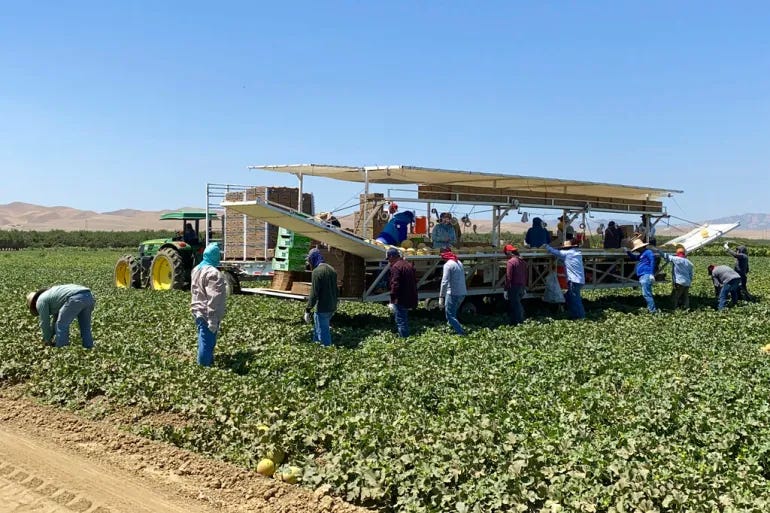Fear Grips Rural California as Migration Raids Raise Concerns Ahead of Trump's Return to Office
Advocates warn that recent raids may signal an intensified effort to target undocumented workers under the incoming Trump administration.
Los Angeles, California — Recent raids by U.S. Customs and Border Protection (CBP) in rural Kern County, California, have left immigrant communities in fear, as President-elect Donald Trump prepares to return to office.
The operation, which took place over three days in early January, resulted in the detention of 78 people, according to CBP. However, the United Farm Workers (UFW) union estimates the number to be closer to 200.
“The fields were almost empty the day after the raids,” said Alejanda, a 38-year-old undocumented farmworker who asked to remain anonymous. She described how many workers chose to stay home, fearing for their safety. “Orchards are usually bustling with people this time of year, but when I returned to work, it felt like I was alone.”
The raids are seen by local workers and organizations like UFW as a warning shot from immigration enforcement agencies ahead of Trump’s inauguration. With his second term expected to usher in a stricter approach to immigration and deportation, anxiety is mounting within immigrant communities.
While the number of detainees represents only a small fraction of the estimated hundreds of thousands of undocumented workers in California’s agricultural industry, the psychological toll is significant.
“On Wednesday [the day after the raids], I stayed home from work. I barely left my house,” Alejanda added, explaining how she kept her young son home from daycare out of concern. “Everyone is talking about what happened. Everyone is scared, including me. Even though I didn’t see the agents, you feel the tension.”
Immigration Agencies Feel Empowered
Following a presidential campaign in which Trump frequently referred to undocumented migrants as “criminals” and “animals,” there is growing concern that the incoming administration will launch the “largest deportation program” in U.S. history, with a potential focus on workers who have lived in the country for years.
An estimated 11 million undocumented people live in the U.S., many of whom have built families and communities over decades. The recent arrests in Kern County have been described as the first large-scale Border Patrol raid in California since Trump’s election, raising questions about the potential consequences for immigrant communities and industries that rely heavily on their labor.
Nearly 50 percent of California’s agricultural workforce is undocumented, and this status often leaves workers vulnerable to exploitation. Alejanda notes that raids of this scale are rare in her area.
“I’ve been here for five years, and I’ve never experienced anything like this before,” she said. “The workers were detained while leaving the fields to go home.”
CBP stated that the operation, called “Return to Sender,” targeted individuals with criminal backgrounds and ties to criminal organizations. The raids were conducted by agents from CBP’s El Centro Sector, located more than five hours away from Kern County, which borders Mexico.
“The El Centro Sector takes all border threats seriously,” said Chief Patrol Agent Gregory Bovino in a press release. “Our area of responsibility stretches from the U.S.-Mexico border, northward, all the way to the Oregon line.”
Wider Implications and Growing Fear
Antonio De Loera-Brust, a spokesperson for UFW, expressed concern that agencies like CBP are likely to increase their efforts as Trump takes office. He challenged CBP’s claim that the raids focused on individuals with criminal records, asserting that the operation was a broad sweep targeting those who resembled farmworkers.
Two of those detained were UFW members, described as fathers who had lived in the area for over 15 years.
“By operating more than 300 miles north of the Mexican border and seemingly conducting an untargeted sweep based on profiling, Border Patrol is showing itself emboldened by a national political climate of hostility towards hard-working immigrant communities,” De Loera-Brust said. “It’s deeply concerning that this kind of operation could become the new normal under the incoming administration.”


